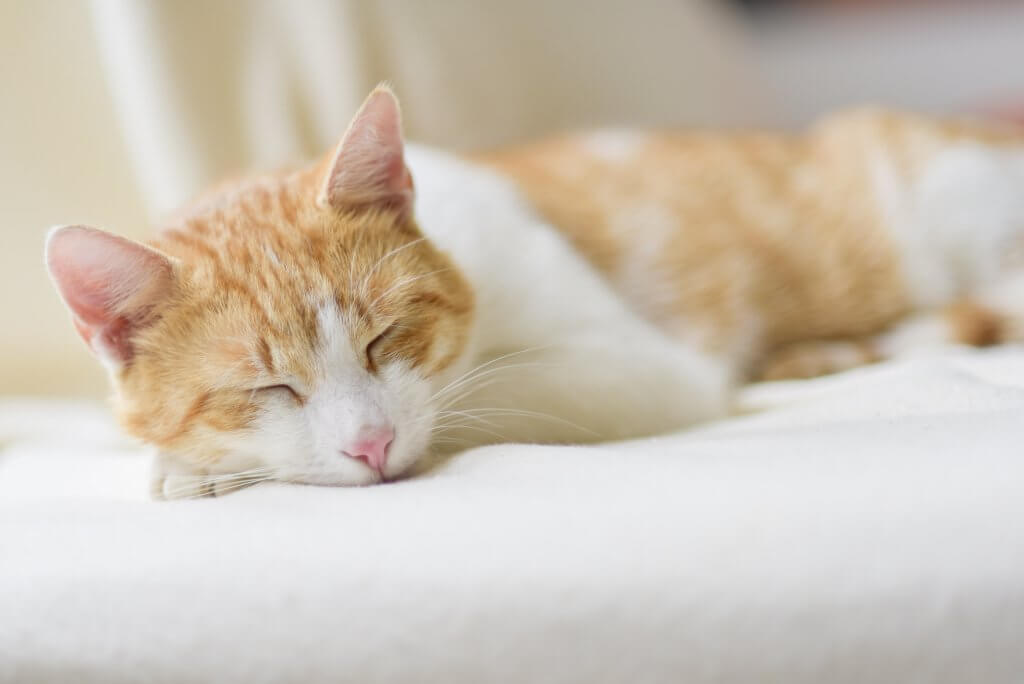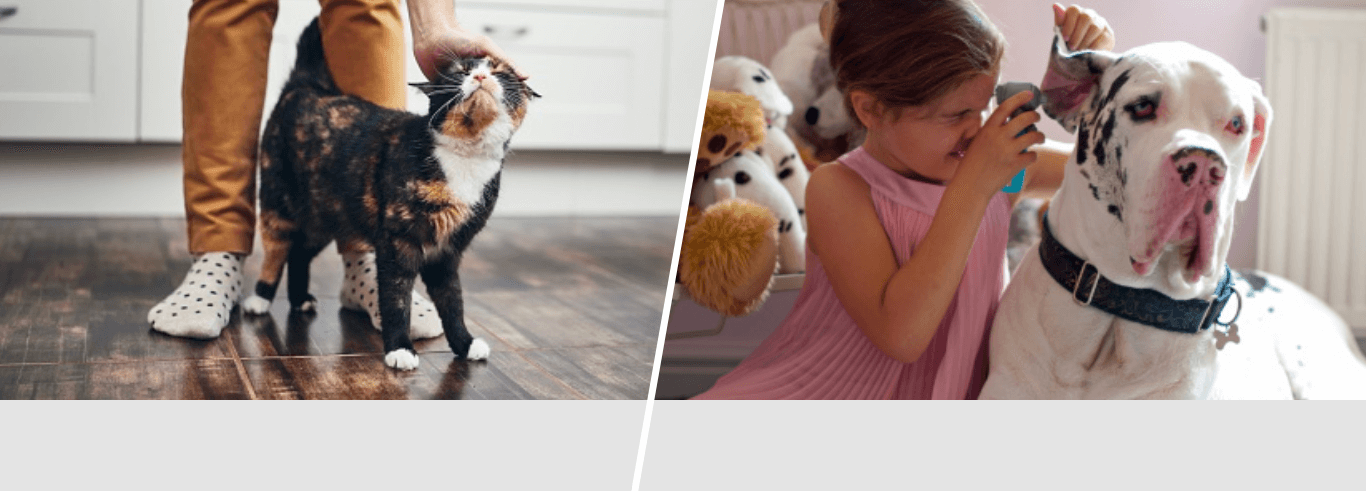Can cats and dogs get colds?
It’s that time of year where colds are passing from person to person, but have you ever wondered whether or not pets can catch colds? If you happen to notice your cat or dog sneezing, it could be possible they have caught the flu too.
Can dogs and cats catch human colds?
No human cold or virus has been shown to be transmissible to dogs or cats. Likewise, dog and cat viruses are not transmissible to humans.
Just like us, however, cats can catch colds (also known as feline upper respiratory disease) – but can dogs get colds? Yes, however, canine influenza or dog flu is much less common. It’s a virus that causes similar symptoms as the human flu and is very rare in the UK.
Dog flu or canine influenza
Dogs very rarely get the flu. But what are the dog flu symptoms? If your dog is sneezing or has the sniffles, it may be due to a number of things, including allergies, kennel cough, foreign bodies or other causes of respiratory tract inflammation, but it is very unlikely to be dog flu. So far, only a couple of cases of canine influenza have been identified in the UK – it’s more common in the US.
What is kennel cough?
Kennel cough is far more common than canine influenza and can also present with sneezing and coughing. It is highly contagious and can be caused by a mix of viruses and bacteria, most commonly Parainfluenza (a virus) and Bordetella Bronchiseptica (a bacteria). Kennel cough usually resolves itself without treatment, however, your vet may advise treatment if it is persistent as there is a vaccine available.
If you do notice your dog is showing any of the following signs; sneezing, nasal discharge, coughing, difficulty breathing, listlessness or loss of appetite, contact your vet for advice.
Cat flu
Cat flu is much more common than dog flu. Although cats do catch colds, it isn’t the same common cold virus that we humans catch. Cat flu, however, does give cats the same side effects as us. So, what are the cat flu symptoms? if your cat is sneezing and coughing or has a fever or loss of appetite, it may well be suffering from cat flu.
Treatment for cat flu
There is no cure for cat flu but there are some things you can do to relieve symptoms for your cat. For example, wipe your cat’s eyes with a clean cloth soaked in salt water. This can help remove any discharge from the nose or eyes. Similarly, give your cat access to a comfy bed and lots of fresh water from a clean bowl.
As with humans, the flu can cause a loss of appetite for cats. This is because your cat may have a blocked nose and will not be able to smell food as well. If your cat’s reluctant to eat, give them their favourite food (chicken or fish) and warm it up, as this will heighten the aromas.
Your vet can help you to manage the symptoms of cat flu, making sure your cat is as comfortable as possible.
How to prevent cat flu
Once infected, cat flu is a lifelong condition and will usually flare up at times of stress.
The best way to prevent your cat from getting the flu is to get them vaccinated. Cats can have a yearly vaccination from nine weeks old, so speak to your vet about this. If your cat has already had the flu, the vaccine will not work.
When to see the vet
Cat flu can be fatal in kittens and older cats – and is usually more common due to their weaker immune systems. If your cat has a pre-existing heart or lung condition, speak to your vet about treatments for the flu.
Your pet’s health is important, keep yourself protected from unexpected vet bills with Argos Pet Insurance provided by Pinnacle Insurance plc. Explore our pet insurance policies today.
[1] Vet Rec. 2005 Oct 22;157(17):527. Smith et al.
Canine influenza virus.
Vet Rec. 2005 Nov 5;157(19):599. Newton et al.
Canine influenza virus: cross-species transmission from horses.
 Sorry, our lines are now closed
Sorry, our lines are now closed





